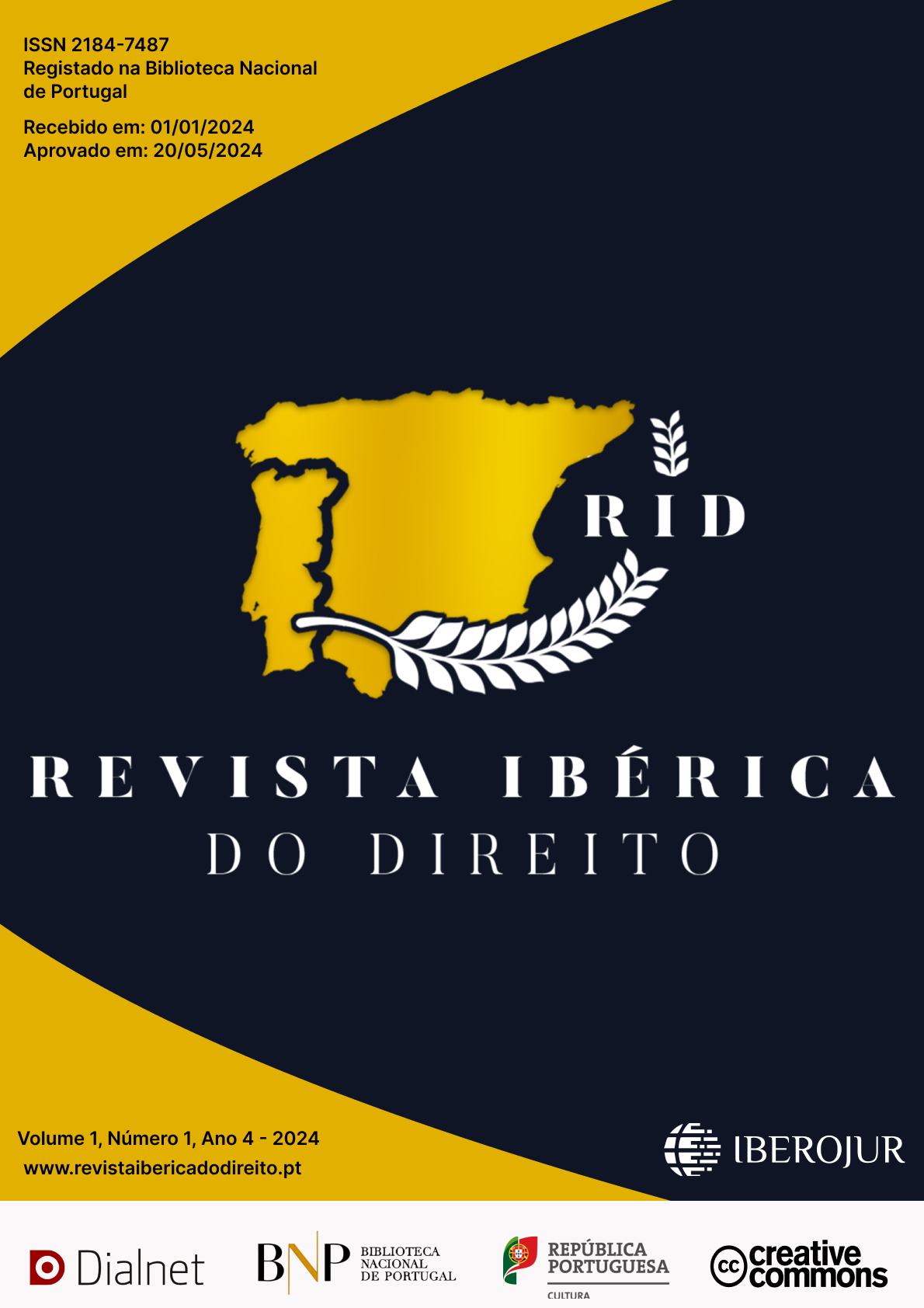A VIOLÊNCIA DOMÉSTICA: REFLEXÕES SOBRE A RESPOSTA DA LEI PENAL PORTUGUESA
The Domestic Violence: Reflections On The Response Of Portuguese Criminal Law
DOI:
https://doi.org/10.62140/39medv56Palavras-chave:
Violência Doméstica, Evolução Legislativa, Bem Jurídico, Penas acessórias, RessocializaçãoResumo
Resumo: A evolução legislativa a qual veio a estruturar o artigo 152˚, como aplicado nos dias de hoje, reflete a intenção do legislador, especialmente, na prevenção e repressão do crime de violência doméstica. Na tentativa de punir condutas que ultrapassam as fronteiras das relações intrafamiliares, quando se entende pela desnecessidade da coabitação para configurar o crime de violência doméstica, já resta claro o afastamento de uma ideia inicial de proteção à instituição família, distanciando assim a relação do bem jurídico tutelado como sendo exclusivamente as relações familiares, mas sim um conjunto de comportamentos que vai além da saúde da vítima e que protege outros bens tais como a integridade física, psíquica, moral, econômica, liberdades pessoal, sexual e a própria honra. As sucessivas alterações legislativas decorrentes da evolução operada no cerne destas relações, teve a preocupação de punir condutas que se utilizam da confiança com a vítima e, até mesmo que exercem o poder de controlo sobre esta, com a intenção de degradar ou humilhar. Para que o combate contra o crime de violência doméstica se torne eficaz torna-se essencial a sensibilização social, porém, do ponto de vista politico-criminal, a atenção deve dirigir-se para a proteção da vítima e a ressocialização do agressor, através da implementação de sistemas robustos de fiscalização das penas acessórias e programas de intervenção junto dos agressores que se demonstrem capazes e eficientes, respetivamente.
Palavras-chave: Violência Doméstica ; Evolução Legislativa ; Bem Jurídico ; Penas acessórias; Ressocialização.
Abstract: The legislative evolution that has come to structure article 152˚ as it is applied today reflects the legislator's intention, especially in preventing and repressing the crime of domestic violence. In the attempt to punish conduct that goes beyond the boundaries of intra-family relations, when it is understood that cohabitation is not necessary to constitute the crime of domestic violence, it is already clear that the initial idea of protecting the family institution has been removed, thus distancing the relationship from the legal asset protected as being exclusively family relations, but rather a set of behaviors that goes beyond the victim's health and protects other assets such as physical, psychological, moral, economic integrity, personal and sexual freedoms and honor itself.The successive legislative changes resulting from the evolution at the heart of these relationships have been concerned with punishing conduct that uses trust with the victim and even exercises power of control over them, with the intention of degrading or humiliating them.
In order for the fight against the crime of domestic violence to become effective, it is essential to raise social awareness, but from a political-criminal point of view, attention must be focused on protecting the victim and re-socializing the aggressor, by implementing robust systems for monitoring accessory sentences and intervention programs for aggressors that prove to be capable and efficient, respectively.
Keywords: Domestic Violence ; Legislative Evolution ; Legal Good ; Accessory Sentences ; Resocialization.
Publicado
Edição
Seção
Licença
Copyright (c) 2024 Revista Ibérica do Direito

Este trabalho está licenciado sob uma licença Creative Commons Attribution-NonCommercial-NoDerivatives 4.0 International License.
Este trabalho está licenciado sob uma Licença Creative Commons Attribution 3.0


